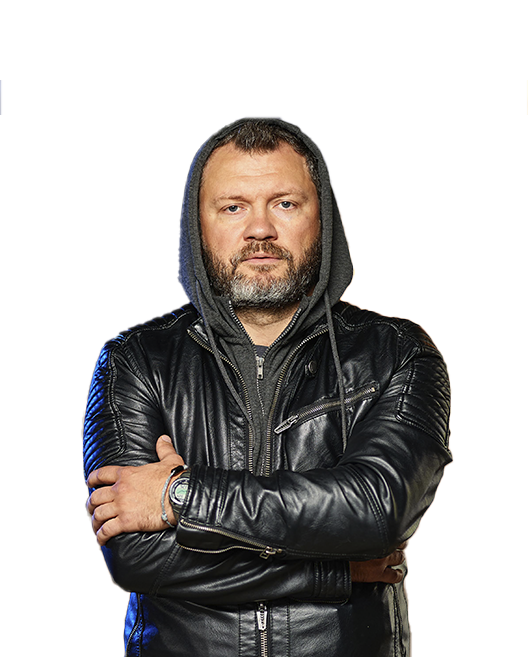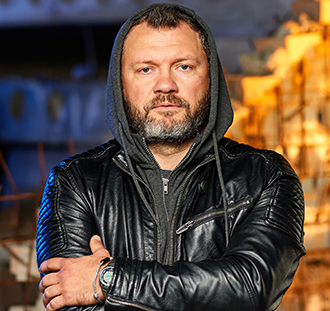Crash Course: Kubernetes, IaC & GitOps 2.0
Mentor: Denys Vasyliev, 15+ years in the industry: from engineer to CTO, author and host of the YouTube channel "Wrong DevOps".

A crash course in Kubernetes, infrastructure-as-code, and modern GitOps systems for automating application deployment and management processes.
Bonus: AI Dev and AIOps.
The course consists of two parts:
-
1. The main part (8 hours):
- Containerization: container from scratch and deep dive
- Kubernetes ecosystem: Kubernetes architecture, container management.
- Deploying Clusters: Configuring and deploying Kubernetes clusters.
- Terraform: infrastructure automation.
- GitOps with Flux: Continuous deployment and configuration management.
- Demo application based on AIDev and AIOps.
-
2. Additional part for beginners (4 hours):
- Introduction to the basics of containerization: basic concepts and principles.
- Kubernetes Basics: Getting started with Kubernetes.
- Infrastructure as code: basics of using Terraform/OpenTofu.
- GitOps: the basics of deploying and managing applications with Flux.
- After completing the course, you will be able to:
- deploy a Kubernetes cluster locally and in the cloud
- monitor and manage applications on Kubernetes
- conduct initial audit and troubleshooting of Kubernetes clusters
- automate infrastructure deployment processes using code
- use GitOps to automate application deployment
- bonus: you will understand when and whom AI will replace, as well as what are the main challenges of its implementation.
During the entire time, the participants will be involved in various activities, and after each class - in homework.
In addition, Kubernetes Crash Games await you. We will conduct a series of games where you can consolidate your knowledge and skills in various aspects of the material covered. It will include: monitoring, logging, networking, security, scaling, and troubleshooting. Everyone gets experience, and the winners get prizes!
Format:
-
Date and time:
- The main module: September 9, 13, 16, 20, 18:30 - 20:30, (Kyiv time, GMT+3), the duration of each lesson is ~2 hours
- Basis module: September 11 and 18, 18:30 - 20:30, (Kyiv time, GMT+3)
Platform: Zoom. You will receive a link to the stream before the course begins, and it will also be available on this landing page. A Kanban board is used to organize, visualize tasks and work processes.
-
Interaction:
- Pairup: work in pairs to help each other and increase efficiency.
- Swarm: collective solution of complex tasks.
The number of participants is limited
Language of the event: Ukrainian
Language of the presentation: Ukrainian and English
*To perform practical tasks, it is recommended to have basic knowledge of Linux, Git, Docker, and any programming language.
**We work with Github, so it is recommended to have a Github account.
Format:
Date and time:
Main module: September 10, 13, 16, 20, 18:30 - 20:30, (Kyiv time, GMT+3), the duration of each lesson is ~2 hours
Basis module: September 11 and 18, 18:30 - 20:30, (Kyiv time, GMT+3)
Interactive sessions, practical tasks*, discussions, Q&A.
Platform: Zoom. You will receive a link to the broadcast before the course begins, and it will also be available on this landing.
The number of participants is limited
Language of the event: Ukrainian
Language of the presentation: Ukrainian and English
*To perform practical tasks, it is recommended to have basic knowledge of Linux, Git, Docker, and any programming language.
**We work with Github, so it is recommended to have a Github account.
Program
- Containerization from scratch. For many beginners, a container looks like a black box. You will understand the terminology, components and tools of containerization, understand the difference between containers on different operating systems. Newbies will manually whitelist and launch their first container. For those who are in the topic, we will find interesting nuances. There will be: cgroups, networking, runc, dive, podman, buildkit, multi-stage and multi-arch builds with docker.
- The Kubernetes ecosystem. The Kubernetes ecosystem. We dive into the fascinating world of Kubernetes, from its history, architecture, and components, to its ecosystem, conferences, and community role. It will be about Borg and Omega, minions and master nodes, DNS and load balancers, cloud providers, cncf and kubecon, certification and Kubernetes Chaos Games. Beginners will have a base, and experts will have another option to prepare for an interview at Google.
- Deployment of K8S clusters. We launch local and cloud, single and multi-node clusters. We analyze the nuances, dice and choosing the best option. We practically learn troubleshooting. There will be: kubectl, kind, k3s, GKE, Kubernetes the Hard Way, monitoring and logging. Beginners get their hands on their own clusters, and experts improve their auditing and optimization skills.
- Everything as code. Let's move from imperative to declarative approach. We package infrastructure, configuration and applications in code. We understand the tools that help automate the cycle of development, code review and deployment of applications. There will be: Helm, Terraform, Flux. Beginners will have the norm, and for experts we will add API-gateway and Service Mesh.
- Infrastructure as code - Terraform/OpenTofu. We automate infrastructure for application deployment. We understand the basic concepts, components and tools. Here will be: HCL, providers, resources, modules, state, remote backends, workspaces, OpenTofu. It will be difficult for beginners, and experts will need to solve the chicken-egg problem.
- GitOps family of projects - Flux. We learn the history of GitOps origin and development. I will share my experience of interviewing at WeaveWorks. Let's deploy and configure a bunch of different Flux controllers in Kubernetes. Newbies will be delighted by the total automation, while experts will try to combine Terraform and GitOps.
- Bonus: AI Dev and AI Ops. The speaker's own experience in applying AI in the development of agents to automate routine tasks. Challenges that arise in projects with artificial intelligence: from the development of models to their deployment and monitoring. Let's take a practical look at the application of GitOps for AI.

Mentor: Denis Vasiliev, Senior SRE at NIQ - GfK Company
— 15+ years in the industry: from engineer to CTO
— Certified Kubernetes Administrator
— Speaker: Fwdays, Xpdays, DevOPSdays, DevOps-DEX London
— Author of Kubernetes DIY course
— Author and host of Telegram and YouTube channel "Incorrect DevOps"
